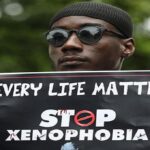Introduction
Histories are usually made up of both sweet and bitter stories; believable and unbelievable stories. Facts and fictions. Lies and truth. The History of Nigeria is not left out. The popular story of the former Chief Justice of Nigeria (CJN), Honourable Justice Walter Samuel Nkanu Onnoghen, CJN (Hon. Justice Onnoghen) and how he was bundled out of office remains one story of dual taste, bitter in the tongues of some, but sweet in the tongues of others.
The brief summary of the story was that Charge No. CCT/ABJ/01/19 between Federal Government of Nigeria v. Hon. Justice Onnoghen, was filed against Hon. Justice Onnoghen for offences bordering on breach of code of conduct for public officers – non-disclosure of assets – at the Code of Conduct Tribunal (CCT). At the time, relying on an ex parte Order of the CCT, the President of the Federal Republic of Nigeria, Muhammadu Buhari, suspended Hon. Justice Onnoghen as the CJN.*
A. G. Cross River State v. Federal Republic of Nigeria [2019] 10 NWLR (Pt. 1681) 401.
Cross River State, whose indigene Hon. Justice Onnoghen is, believed that the charges filed by the Code of Conduct Bureau against Hon. Justice Onnoghen and his subsequent suspension from office by the President were in breach of the Constitution of Nigeria. Consequently, the Attorney General of Cross River State, as Plaintiff, on behalf of the Government of Cross River State, commenced a suit against the Federal Republic of Nigeria and the Attorney General of the Federation (the Defendants) at the Supreme Court by means of an Originating Summons under Section 232 of the Constitution – the Section that makes provision for approaching the Supreme Court as court of first instance, that is, invocation of the original jurisdiction of the Supreme Court.
The Plaintiff sought an interpretation of the relevant provisions of the Constitution, urging the Supreme Court to declare as follows (among other reliefs), that:
1) the Constitution recognises and guarantees separation of powers amongst the arms of Government – Executive, Legislature and Judiciary.
2) only the National Judicial Council (NJC) has the powers to recommend the appointment or removal of a judicial officer.
3) the CCT has no power over any judicial officer for any alleged official misconduct without a formal complaint of such misconduct being first made to and investigated by the NJC.
The Plaintiff sought other reliefs, all geared towards urging the Court to nullify the proceedings before the CCT at the time against Hon. Justice Onnoghen.
The Defendants raised a preliminary objection to the suit contending that the Plaintiff lacks the power to file the action as it has no personal interest in the suit and that there is no dispute between the Government of Cross River State and the Federation to warrant invoking the original jurisdiction of the Supreme Court.**
In deciding the case, the Supreme Court sat as a Full Court (7 Justices). 6 of the Justices (Rhodes-Vivour, Ariwoola, Muhammad, Kekere-Ekun, Okoro and Baje – Justices of the Supreme Court) upheld the preliminary objection and struck out the case without addressing on the merits, the main issues raised. 1 Justice (Mary Peter-Odili, JSC) dissented, upholding the contentions of the Plaintiff and granting the reliefs sought.
Position of the Majority
In delivering the leading Judgment of the Majority, Ariwoola, JSC concluded:
…I am unable to see where lies the dispute between the Government of Cross River State and the Federal Republic of Nigeria as to confer the Plaintiff with standing to invoke the original jurisdiction of the Supreme Court. There is no doubt that the issue involved in this matter, inter alia, is the suspension of Mr. Justice Walter Samuel Nkanu Onnoghen, GCON from office as the Chief Justice of Nigeria by the President of the Federal Republic of Nigeria. And without going into the merit or otherwise of the action of the President in suspending the Hon. Chief Justice of Nigeria, one wonders how that has created a dispute between the Government of Cross River State as an entity and the Federal Republic of Nigeria. In my view, the appropriate person to challenge the suspension and subsequent trial before the Code of Conduct Tribunal is the officer who is on suspension but certainly not Cross River State of which the Hon. Justice is said to be an indigene. I am therefore not in the slightest doubt that the Plaintiff in this case lacks the required standing to institute this action as constituted. In other words, the original jurisdiction of the Supreme Court is not being properly invoked to adjudicate over this matter.
Kekere-Ekun, JSC held:
Throughout his submissions, the learned Senior Counsel (to the Plaintiff) failed to demonstrate what legal right Cross River State seeks to protect by this suit. I am inclined to agree with learned Counsel for the Defendants that the subject matter of this suit is personal to Hon. Mr. Justice Onnoghen. The Office of Chief Justice of Nigeria is not a prerogative of Cross River State. Whether or not the Federal Government rode roughshod over the powers of the National Judicial Council in instituting the charges against the Hon. Mr. Justice Onnoghen is, at best, an issue to be taken up by Hon. Mr. Justice Onnoghen and/or the National Judicial Council and not the Cross River State Government.
On his part, Baje, JSC, said:
What more should I add or say in view of the above, beyond amplifying the obvious facts that this suit is defective. This suit needlessly and unjustifiably attempted to over-drag this Court into murky waters!!! This is because the reliefs sought in this matter are not for the benefits of Cross River State as an entity. The ultimate beneficiary is Hon. Mr. Justice Onnoghen and/or the NJC. The Plaintiff would appear to me acting as a meddlesome interloper or unsolicited mourner who, for certain personal reasons which may or may not be noble, opted to ‘cry and shed tears’ more than the actual bereaved person(s).
Rhodes-Vivour, JSC:
It must now be abundantly clear that the Plaintiff has no locus standi to institute this suit in the Supreme Court under its original jurisdiction. His Lordship has a cause of action but unfortunately one that cannot be heard in the Supreme Court in its original jurisdiction for the simple reason that his Lordship is not a State. See Section 232(1) of the Constitution. The proper forum for these claims is a High Court.
Dissenting opinion of Mary Peter-Odili, JSC
Although the Majority Judgment is not lacking in good logic, however, Mary, Peter-Odili, JSC, the lone voice in the wilderness, gave us something to consider regarding the preliminary objection:
With the happening, the question automatically arose as to the constitutionality or otherwise of the actions of the Code of Conduct Tribunal and the Executive acting on the Order of this questioned process emanating from the Tribunal. Again thrown in the mix is whether in the light of the various definitions given to the word “dispute” what has taken place has not qualified to be termed a dispute as envisaged by Section 232 (1) CFRN for which the Plaintiff would act upon the platform endowed it by the same Constitution which offers a direct route igniting the original jurisdiction of the Supreme Court rather than take the laborious, time consuming procedure of the three legged route of the High Court, Court of Appeal and finally at this point of the Supreme Court in a clear emergency situation since what is at stake is the threat or actual violation of the Constitution in chopping the third leg of the tripod holding the nation. Another way to say it is that in this democratic Nigerian nation there are three arms of government: Executive, Legislature and Judiciary and then the Executive sets in motion an extra-judicial prosecution since no reference had been made to the National Judicial Council before prosecuting a judicial officer and making an Order that deprives him of rights to fair hearing and the same Executive acting through the Nigerian President orders and effects the suspension of Justice Walter Onnoghen, Chief Justice of Nigeria, again without recourse to the National Judicial Council, the body duly empowered with the disciplinary authority over judicial officers including the said individual and can one rightly say a dispute has not arisen for which any State of the Federation and particularly State of Origin from which the individual came to be a Nigerian would sit back and do nothing. I think not. I say so because what has presented has the capacity, if not properly addressed, to destroy the structural foundation on which the Nation is built. Therefore, the Plaintiff, as any other person or State, has the locus standi to rush to the Supreme Court in alarm at what it has seen as a flouting of the Constitution and a thorough violation of its provisions. The Supreme Court itself is duty bound to hear the Plaintiff and the defence, on the grievance of the Plaintiff in the apex Court’s position as the custodian of our Constitution.
Hon. Justice Peter-Odili, JSC also decided on the merits of the case and granted the reliefs sought by the Plaintiff. His Lordship made further compelling remarks:
Again, in full measure to add is the fact that any State of the Federation as a federating unit has the right to ask if any encroachment into the Third Arm of Government has not taken place by the suspension of Justice Onnoghen CJN, as each State of the Federation is a stakeholder in the Supreme Court of Nigeria and the justices therein, also with regard to judges of the various courts at the Federal level. That Cross River State is not involved in the appointment of a Justice of the Supreme Court or Chief Justice, it is an interested party in ensuring that the procedures provided for in the Constitution for such an appointment or removal are strictly adhered. Therein lies the spirit of brother’s keeper reiterated variously by this Court.
Conclusion
Whatever the merits of the opinion expressed by Mary Peter-Odili, JSC, her Ladyship’s opinion remains a minority opinion. The Majority Judgment which remains the position of the law as at today is that it is only Hon. Justice Onnoghen and/or NJC that can sue to address the issues of constitutional breaches raised in this case. More so, that the action can only be commenced at the High Court and not at the Supreme Court. The Supreme Court can only hear and determine any appeal emanating from any decision of the High Court.
Also, what is equally clear from the Judgment of Mary Peter-Odili, JSC is that her Ladyship acknowledges the overwhelming troubles of every common Nigerian in approaching the High Court, Court of Appeal and Supreme Court, for preserving and asserting rights. The delays are incredibly infuriating. While efforts being made to address this problem are acknowledged, the solution appears to still be far from sight.
Are we going to ever have any opportunity to have the suspension of Hon. Justice Onnoghen judicially addressed? Only time will tell. For now, the tale may be bitter or sweet, depending on your taste buds.
*Hon. Justice Onnoghen was subsequently convicted. His Lordship appealed.
**Original Jurisdiction of the Supreme Court – A. G. Federation v. A. G. Anambra State.














